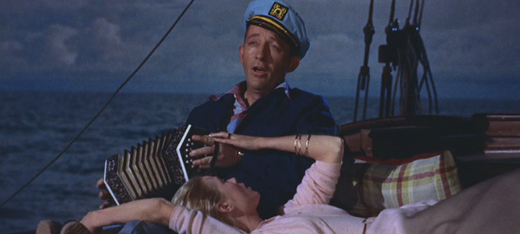
When I woke up this morning, I knew that I’d be having a Reading Day. I’ve been firing on all cylinders for a longer stretch than usual, and I’ve feeling good about it, too. It got to the point where I felt so good about it that I couldn’t stand it. In future, I hope to trim these lapses into immoderate ebullience, but, for the moment, there are Reading Days.
Yes, there’s something bogus about the label, something prim and euphemistic, because of course Reading Days are devoted to reading because I’m good for nothing else; they’re Burnt-Out Days. If they were genuine Reading Days, then I wouldn’t feel so guilty about them, especially around lunchtime, which is when it becomes obvious that I’m never going to get any real work done. I’d say, this is a scheduled Reading Day! In fact, I could never schedule a day for reading. It would be like scheduling a day for taking taxis or eating potato chips.
What saves my Reading Days from ignominy is the fact that I can’t stand to read junk. Just as I can’t stand to watch television, unless it’s Mad Men or something in French. (If my French were as good as it ought to be, I’d have to give this up.) I find “escapist” reading to be anything but: the only thing that I want to escape is the lousy book. For example: I picked up a copy of Harlan Coben’s Tell No One once. I should say right away that I love the French film that was adapted from it. But the book revealed itself to be utterly unreadable by me on the fifth page. The writing was execrable. That’s why they invented the word “execrable”: to describe the prose style of Harlan Coben. I take my hat off to the stronger sorts who can wade through it.
(Memo to self: compose a list of well-written junk. Is there any? There must be!)
So what I read to today was history. Like most men, I would rather read history than fiction. Unlike most men, I would rather read fiction than military history. I don’t mind the occasional battle, but let’s be honest: the average battle is about as interesting, from a strategic sense, as a game of roulette. You want to win, yes; but you don’t want to read about it. Except for the odd mis-match, battles are to accident what the human body is to water: mostly.
I have not encountered any battles yet in Chris Wickham’s The Inheritance of Rome: Illuminating the Dark Ages, 400-1000, but then I’ve been skipping around. Â I see that Mr Wickham sternly disapproves of reading the history of these much-maligned centuries for “the narrative of nationalism,” by which (I think) he means evidence of the origins of modern Belgium, &c. But that’s exactly what I love about the period.
Take that treaty, which I’m always disposed to mention at the slightest inducement, between Charles the Simple and Hrolf the Viking, in 911. Charles went on to be extinguished, but Hrolf, a/k/a Rollo, begat and begat until William the Conqueror, wouldn’t you know, issued; and one of the intermediate begats, a Richard or a Robert, decided that “count of Rouen” wasn’t grand enough, so he started calling himself “duke of Normady.” No battles involved in any of this, but look what came of it! (The Battle of Hastings, yes; but Other Things, too.) Mr Wickham doesn’t shed much light on the meeting at St-Claire-sur-Epte (rightly so, given the scope of his book), but he does say this:
Charles was not an entirely useless king. His Lotharingian adventure was at least a sensible strategy, even if a desperate one [must go back and learn more!]. He also had the vision to deal with the Vikings of the Seine by recognizing them and settling their leader Rollo as count of Rouen in 911. The Vikings (Nortmanni in Latin) of the Seine more or less respected their side of the deal, and held off future attacks; they settled down and soon began to behave in ways analogous to other Frankish magnates, and “Normandy,” though prone to civil war, remained fairly firmly in the hands of its count/duke.
The magic, of course, lies in the idea of Vikings settling down. It’s enough to make you believe that anything is possible. As, indeed, it is!
Dublin was the most powerful and dangerous of these new polities, and in the 850s it became the focus of stubstantial reinforcements, but the Vikings never engaged in large-scale territorial conquest in Ireland. It was too difficult, with all those tiny kingdoms, and also not hugely remunerative, as there were too few stores of movable wealth (as in eastern Europe, slaves were Ireland’s most valuable exportable commodity.)
Not so cheering, no. But I’m sure that I would read Harlan Coben’s books if they were written by a stylist of Chris Wickham’s caliber.
You’d think that a book about “the Dark Ages” would be more depressing than any other kind of history, but Jonathan Lears’s Rebirth of a Nation: The Making of Modern America, 1877-1920 is the saddest book that I’ve read in eons. I want to shout, Stop that Making of America! The making of Frankenstein’s monster sounds like a much better idea. I had not gathered from the reviews — and the publisher, Harper, has gone out of its way to package the book misleadingly — that Mr Lears intends his title with extremely bitter irony. It refers, of course, to D W Griffith’s horribly proto-fascist film epic of the same name (more or less). I wasn’t expecting this, but The Rebirth of America seems designed to support my conviction that the “Civil War” wasn’t worth it.
Still, concentrated capital set the boundaries of permissible debate. The Supreme Court proved particularly helpful to business interests, eviscerating the Sherman Act by excusing offenders on technicalities, and defining labor unions as “combinations in restraint of trade.” Equally important was the Court’s gradual redefinition of the Fourteenth Amendment as a substantive defense of corporate property rights. The culmination of this process was the Court’s decision in Santa Clara County v Southern Pacific Railroad (1886), which extended the definition of the word “persons” in the Fourteenth Amendment to include legal persons — ie, corporations. What began as a measure to confer rights on ex-slaves became a boon for big business.
I suppose, though, that it’s better to feel Burned than Burnt Out.















